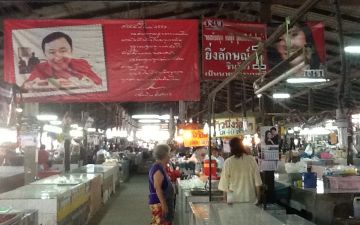Ever since 1991, when a Chinese-Thai billionaire named Thaksin Shinawatra was elected the country's prime minister, Thailand has been in a state of intractable stalemate, divided into two large camps neither of which will allow the other to take, or hold, power. Now, for the 13th time in the past 80 years, the country is being ruled by a military junta, one that, like its predecessors, promises to restore democratic ways—eventually.
The current crisis is similar to many others in the past, but different as well. Never before has there been so charismatic and dominant a figure in Thai politics as Thaksin, who represents a demand by the previously disenfranchised to have their voices counted. He or one of his proxies has won every free election to be held in the country for more than 20 years, and is likely to do the same whenever a new election is held. In addition, for the first time in seven decades, Thailand faces a royal succession—the revered king who has reigned for 70 years now old and ailing—and this has added an edge of razor-like sharpness to the political conflict.
Can the military forge a stable future, keeping Thaksin out of the picture? It is a question of explosive importance to Thais and to the United States as well, with the U.S.-Thailand alliance facing a new challenge in the rise of an aggressive and nearby China.





